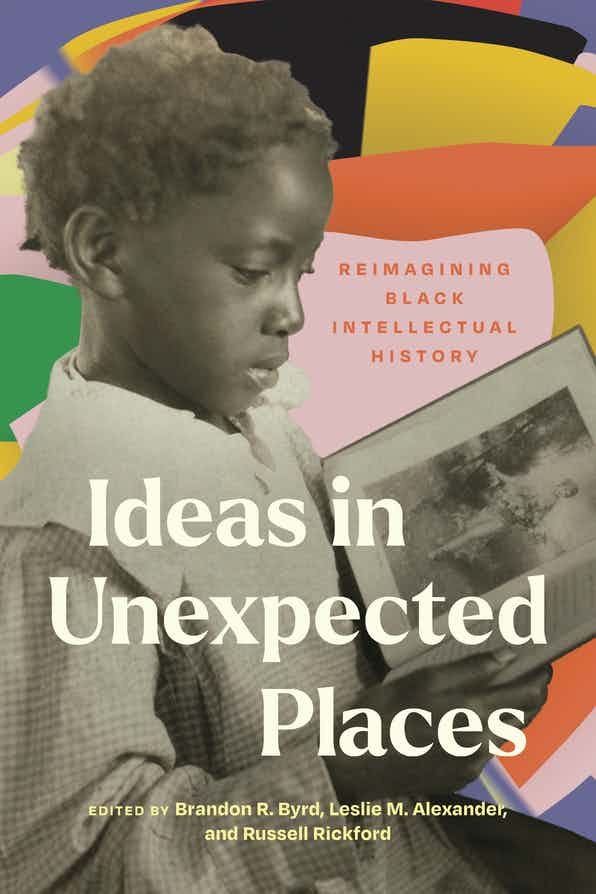IDEAS IN UNEXPLECTED PLACES
Reimagining Black Intellectual History
Edited by Leslie M. Alexander, Brandon R. Byrd and Russell Rickford
This transformative collection advances new approaches to Black intellectual history by foregrounding the experiences and ideas of people who lacked access to more privileged mechanisms of public discourse and power. While the anthology highlights renowned intellectuals such as W. E. B. Du Bois, it also spotlights thinkers such as enslaved people in the antebellum United States, US Black expatriates in Guyana, and Black internationals in Liberia. The knowledge production of these men, women, and children has typically been situated outside the disciplinary and conceptual boundaries of intellectual history.
The volume centers on the themes of slavery and sexuality; abolitionism; Black internationalism; Black protest, politics, and power; and the intersections of the digital humanities and Black intellectual history. The essays draw from diverse methodologies and fields to examine the ideas and actions of Black thinkers from the eighteenth century to the present, offering fresh insights while creating space for even more creative approaches within the field.
Timely and incisive, Ideas in Unexpected Places encourages scholars to ask new questions through innovative interpretive lenses—and invites students, scholars, and other practitioners to push the boundaries of Black intellectual history even further.
Contributions by Davarian Baldwin, Richard Benson II, Alexis Broderick, Charisse Burden-Stelly, Vincent Carretta, Kellie Carter-Jackson, Nathan DB Connolly, Marlene L Daut, Shannon C Eaves, Thavolia Glymph, Alexis Pauline Gumbs, Jessica Marie Johnson, Jeffrey R Kerr-Ritchie, Deirdre Cooper Owens, Jessica Millward, William Sturkey, Quito Swan, Marisa Parham, Michael O West and Christy Hyman.
PRAISE
“The contributors to Ideas in Unexpected Place: Reimagining Black Intellectual History offer insightful and innovative explorations into the possibilities of the undertheorized field of Black intellectual history in the United States and the vast African diaspora from the early nineteenth century through the twenty-first century. Challenging conventional notions of what it means to be an intellectual, the thought-provoking essays in this volume will undoubtedly influence future debates and cross-generational dialogues about how diverse groups of Black thinkers and activists made sense of their worlds.”
“Ideas in Unexpected Places powerfully captures the remarkable impact of the African American Intellectual History Society in shaping—and significantly expanding—the field of Black intellectual history. The volume brings together an array of talented scholars who offer brilliant insights that will forever change how we write about Black thought, history, and culture.”
“Ideas in Unexpected Places is a timely, cohesive, and critical volume that seeks to push, and even trouble, how historians of African American intellectual history, and historians of intellectual history more broadly, define, investigate, and document Black intellectual history. Challenging historians to reconsider the production of Black intellectual thought and activity, the methodologies historians deploy to explore these subjects, and the primary sources that form the bases of their analyses, the collection succeeds in making a well-organized and crucial contribution to current debates about the limits and violence of the archive, the privileging of certain voices and perspectives over others in historical argumentation, the contours of Black agency, the ideological and geographical origins of Black Power, the intellectual production of Black women, Black international solidarities, and documenting and disseminating Black histories in a digital age..”
“This is a broadly conceived project that is expansive and forward-looking while attendant to a tradition of scholarship and epistemology emanating from the African diaspora. Familiar subjects of history are given new light, new treatment . . . a welcome contribution to the field of intellectual history.”
